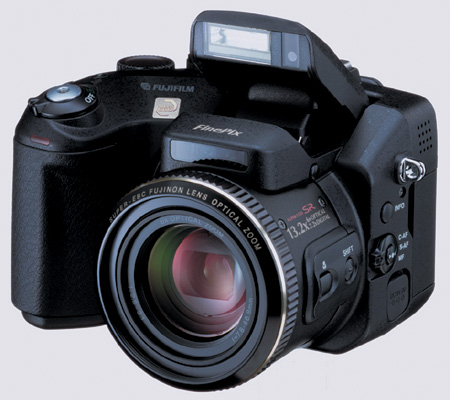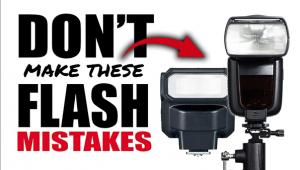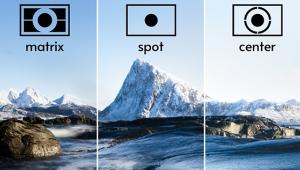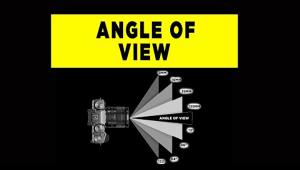Fujifilm's FinePix S20 Pro--Small Camera, Big Results
Unique Chip Makes It Stand Out On A Crowded Field
I bought a Fujifilm FinePix S1 Pro
the minute it came out--ditto with the FinePix S2 Pro. A box containing
the new FinePix S20 Pro digital camera arrived recently on my doorstep along
with wide angle and telephoto accessory lenses. What follows are my observations
after having used the camera for about three weeks and capturing several hundred
images. These include studio sessions, outdoor portraits, sports, close-ups,
and scenic photography.
First, the operation and menus are not as intuitive as a pea brain like me would
like. I had to read the instruction book that came with the camera. I had to
figure out how to set ISOs, file size, white balance, flash, etc. I suppose
that reading the instructions is a good idea these days. The current crop of
digital cameras are so feature laden that the days of just picking up a camera
and starting to shoot are about over. There is also a very useful software program
that ships with the camera. More about that later.
 |
Spec wise, it's got some pretty
impressive numbers. First, we've got the chip. It's the new and
improved version which Fuji calls the Super CCD SR. Coming in at 6.2 megapixels,
the claim to fame is the extended dynamic range. While everyone focuses on the
amount of pixels in making buying decisions, dynamic range is also a major consideration.
By increasing the dynamic range, more highlight and shadow detail will be captured
at any given exposure. Digital cameras up to this point have been rather limited
in this respect, especially when compared to film. Fuji hopes to narrow the
gap with this new chip. More on that later as well.
The camera uses either an xD-Picture Card or an IBM Microdrive. I hadn't
seen the xD cards before, but I can tell you that they are very small. They
are, I suppose, great for making cameras smaller but be careful where you put
them or you may never find them again. I used a 1GB IBM Microdrive for most
of my shooting since I have four of them and they give me great storage capacity.
 |
|
|
I was very anxious to use the camera because of the integral lens. It's
the 35mm camera equivalent of having a 35-210mm lens always at your command,
and the camera is very lightweight. Not only that, the lens is fast, starting
at f/2.8 and topping out at a still respectable f/3.1 on the long end. If that's
not enough, I was supplied with the wide angle and telephoto adapter lenses
that extend your range from 28mm to 315mm (35mm equivalent). These mount by
screwing on a tube to the camera body and then adding the other lenses to the
tube. It's pretty quick, and since 95 percent of the time you'd
probably be fine with the normal zoom range, not much of an inconvenience. Because
of the speed, quality, and convenience, this lens gets very high marks from
me.
I also received the Hyper Utility software with the camera. This very useful
software allows you to connect and control your camera via a FireWire connection.
You can shoot with no media card and images will be stored directly to your
computer. It also can be used to process and convert images shot in raw format.
You have control over white balance, tone, sharpness, and color. But the really
cool thing about it is the built-in warning signals that show you the overexposed
and underexposed areas in your image. By using this utility, I was able to compare
the dynamic range of the same image taken at the same exposure with my FinePix
S2 Pro camera. See the photos for the results.
 |
|
|
































